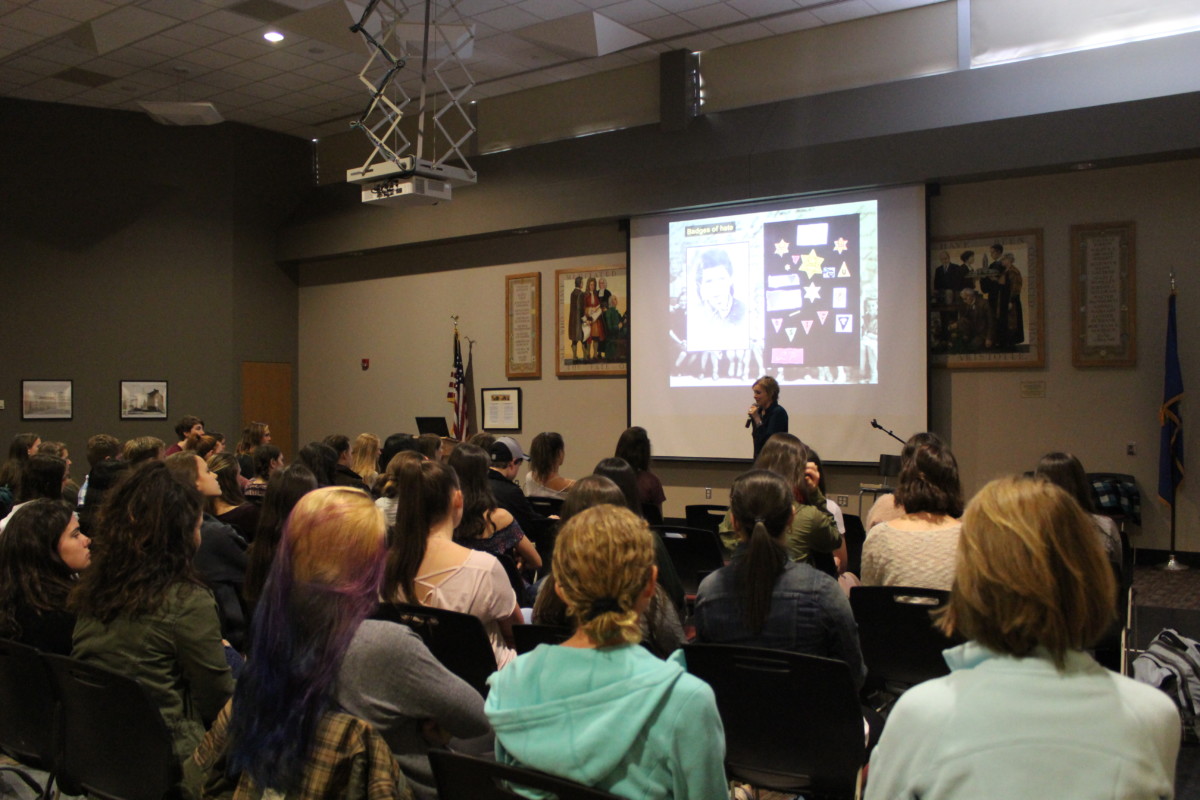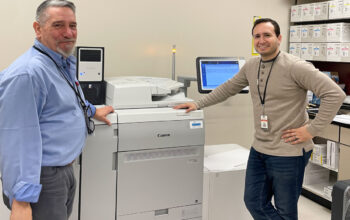Abby Weiss
@aweisscourant
In English class, many students feel that analyzing stories such as Holden Caulfield’s or Odysseus’s has no significance on their everyday lives. But in the elective Literature of the Holocaust, students read stories written by survivors of this brutal event and find it easier to connect these books to our current lives. This one-semester senior course combines this genocide’s both historical and literary elements while stressing the relevance it has to modern global conflicts.
In 2009, English Teacher, Christine Bonarrigo, introduced this course to the high school after noticing how interested students were in the book Night written by Holocaust survivor Elie Wiesel. In 2013, after partnering up with colleague Emily Hernberg, Ms. Bonarrigo won the Susan J. Goldberg Memorial Teacher Award for this course. Shortly after, she retired leaving behind a curriculum that interests and changes the perspectives of many students.

Emily Hernberg, who took part in the development in the class and now teaches it, focuses on not only the economic and psychological causes of the Holocaust, but also the rise of anti-semitism and dehumanization of Jews in Europe. “One thing we focus at the end of the semester is moving on in the effect of trauma on future generations,” she said. “We look at how to forgive, when to forgive, even if to forgive, and who has the right to forgive.”
One project that reflects this aspect of the class is the Not In Our Town project which occurs at the beginning of the semester. The class reads a book based on a town in the 80’s that was experiencing anti-semitism. In order to make a statement against the racist and prejudice people, the townspeople put menorahs in their windows and all around town. Then for the project, students come up with something that’s wrong with our town or in the world, research it and then present and explain why it’s wrong using statistics and personal anecdotes.
Francesca Guynn, a senior who took the class last semester, chose this elective because she was interested in the time period. “I knew there was so much to learn about the Holocaust- the mechanisms behind planning, the psychological hold over the officers of the German army, the effects on cities with the loss of so many residents, and the overall devastation,” she said. “All of that cannot be fully covered in three weeks of world history class sophomore year.”

Francesca also explained that the literature they studied gave her a new perspective on the Holocaust. “The books we read were mostly memoirs from very different people and their unique ways of staying alive if they were Jewish, and how they helped others if they weren’t,” she said. “I think it is important to understand that nobody’s experience during the Holocaust was easy, but it was those who were able to fight and keep their humanity who were among the survivors.”
She then stated that this class influenced her view of the world the most. “I haven’t taken another class that really could expand on an event in history like in Literature of the Holocaust,” she said. “Because of that, I have more respect for that era and a firmer understanding of the dangers of discrimination in the world today.”
Ms. Hernberg explained that a main goal of the class goes beyond learning about the time period. “The reason we teach history in general and atrocities that have happened the past is just to inform our present,” she said. “I would like students to come away thinking that they can make a difference in our community and that there’s always a choice to make the right decision to stand up for someone in need and against the prejudice.
Ms. Hernberg also feels that this course stands out the most among many other english and history courses. “What sets it apart from history classes is it’s a very specific focus on a very specific time period which I don’t believe we have in any other courses in the school, so it’s very unique.”
Francesca recommends this elective because of the amount of relevance it has on the world today. “It is a part of our history that is almost past first hand accounts, and if we don’t educate ourselves on the roots of the Holocaust and how such a large genocide could happen, then we lose important lessons about how to treat others today,” she said. “Discrimination is always present, and it’s important, despite how unthinkable, it is to realize that is what led to the Holocaust.”




